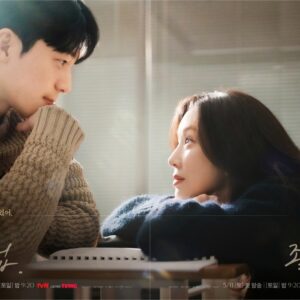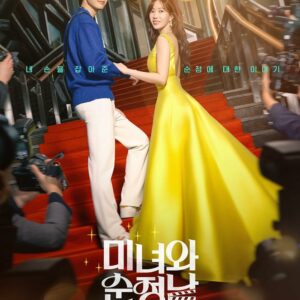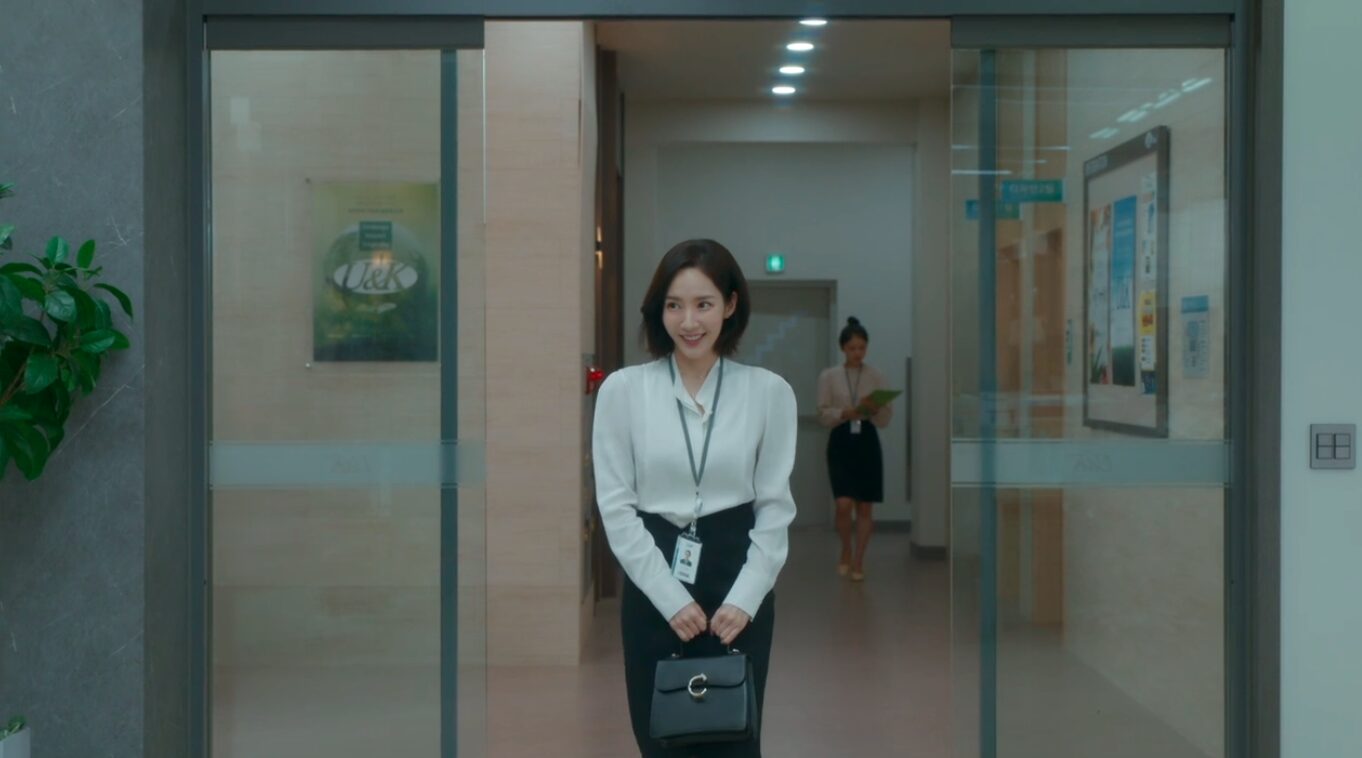Warning: This point contains spoilers but does not contain swearing and for that I should maybe get an award
I was going to start this post with a reference to my favourite drama. But since everybody knows what that is and I’ve written about it fifteen times before, all I’ll say is that I spend most of my drama-watching life hoping for something just as good and – more importantly – just as iconoclastic.
Not that I have a problem with the standard kdrama tropes: I’ll play trope bingo with the best of them. But every now and then, something comes along that is completely new, completely fresh, and that keeps me tuning in week after week.
Sometimes it’s because it avoids those tropes and sometimes it’s because it subverts them beautifully. My Strange Hero is a decent recent example of the former while the latter I found in a Manhwa called Happy If You Died.
During winter last year, this Manhwa was my delightful companion on the bus to work. Thankfully my human bus companions were more amused than concerned at me laughing so hard while I enjoyed the adventures of Luda, her romance with the kind and altruistic Kang, and her crazy attempts to save the life of her awful misogynstic boss, Baek.
Luda finds herself stuck in a time loop where she goes to increasingly insane lengths to save Baek’s life, ultimately failing and losing her own. Was Luda doing this because she was secretly in love with Baek? Because they would end up together? No, Luda was doing this because she didn’t want anybody to die – even if it was a man she hated.
The main plotline of the Manhwa is contrasted with one about her love interest, Kang, who risked his life to save a stranger who had fallen onto train tracks, eventually losing his life too.
Not that any of these deaths stay fixed as the time travel becomes more and more crazy and more and more complicated. At one stage it becomes clear the writer of Happy if you Died had written herself into a corner and needed to blast herself out of it. Which she does with panache. The ending of the web comic is pretty well perfect, taking its themes to a beautiful conclusion that remains true to the writer’s intent and (mostly) makes sense.
What set Happy if you Died apart was its themes around kdrama plots and tropes. At its core, this Manhwa was about the kind of masculinity and gender roles sold to us by Korean dramas. Chief Baek was a raging misogynist. His raison d’être and the reason he was so hated was because he believed himself to be so inherently superior to everybody – especially women – that he regularly lectured them on how to live their lives. And that “advice” was extremely sexist and patronising. Baek was the kind of person who would mansplain chopsticks to a Korean woman.

This character – the classic powerful, paternalistic boss – is regularly portrayed in dramas as an appropriate love interest to his subordinate female (once she’s “fixed” him of course). So the writer put his character in a storyline where the female lead had to “fix” him but then made that quest hopeless. Chief Baek had to fix himself. Most importantly, they contrasted his character with Kang – a second male lead who was just… nice. Kang was a man who had chosen to be nice. Not to get the girl or to be better for the woman he loved but just because he thought it was better to be nice.
And the consistent, unwavering love interest of Happy If You Died?
Kang.
Not Baek.
Kang.
Happy If You Died was a razor-sharp satire on the romantic fantasies sold to women by dramas. If you’re hard working, selfless and noble, a chaebol will take care of you. If you devote yourself to the boss, he’ll be successful with your selfless support – and eventually become your husband too. If a man is badly behaved, arrogant and cruel, it’s your responsibility to fix him and to not be too judgemental or upset about his behaviour during this process.
This kind of storyline is exemplified in Jugglers: a 2018 Korean drama about a selfless and hardworking secretary who reforms – and then marries – her rude and inconsiderate boss.
This drama’s final conclusion is that men succeed with the help of a good woman. It’s his role to be successful and hers to support him both at work and in the home. It’s a philosophy that reduces women to servants. He works in the world for himself, she works for him.
Happy if you Died set out to critique this in a brilliant (and admittedly hilarious) way.
Chief Baek doesn’t need to change to gain the love of a good helpmate. Chief Baek needs to change for himself. The female lead needs to learn his life and his behaviour is not her responsibility.
In that, it completely subverted the standard tropes for a certain kind of kdrama.
Baek thinks the only reason Luda cares about saving his life is because she’s in love with him. Baek is wrong. Baek thinks Luda would rather date a man in a higher social and professional position than nice-guy Kang, even if that man is horrible. Baek is wrong.

When I heard that they were making a live adaptation of Happy if you Died, I was half excited and half terrified. Because any drama based on this text would either be the best, most-subversive and most iconoclastic drama since that show I don’t need to name or… not. And that made me very nervous.
Was it possible for this particular Manhwa to be adapted properly in 2018 or would the writers panic and try to twist it back into a form familiar to kdrama viewers, thereby missing the point?
When the first few episodes of Feel Good to Die dropped, I tentatively tuned in, hoping against hope that the adaptation would be faithful to the original text. Luda had become Lee Roo-da but the other character’s names were the same.
So what did the drama version do with all these trope busting characters and scenarios?
It reinstated them. It actually took characters who were satirical criticisms of those tropes and turned them back into standard kdrama tropes. And all this without any irony whatsoever.
Instead of being a satirical subversion of a Korean office drama, Feel Good to Die became another version of Jugglers. From scene one, it became obvious that this would be a show about a hardworking woman surviving in the corporate trenches while caught in a love triangle between a Chaebol and her tsundere boss, whom she would eventually end up with.
Which is fine if you’re a fan of the genre but it’s the antithesis of what Happy If You Died was supposed to about. Lee shouldn’t need to learn a Very Important Lesson from the loops – unless it’s that she’s not responsible for Baek’s salvation. They took a critique of the genre, turned it back into the genre and then called it an adaptation of the critique.
But where the adaptation truly falls down is in the character of Kang. Making Kang a bored entitled chaebol was the one change that was almost offensive in how tone deaf it was. In the Manhwa, Kang was a character who had already gone through the journey Baek was on but for reasons that were entirely his. He’d needed no external stimulus – no divine intervention – to change. He’d done it because he had decided that that was how he wanted to live his life. In Feel Good to Die all of Kang’s narrative purpose as a counterpoint to Baek was gone.
I don’t know how the rest of the show unfolded, although I could guess. We’ve all seen this show before – it was merely the latest iteration of a standard office drama. I only made it to episode 3, had a very public tantrum and then decided to pretend that the much-anticipated adaption of Happy If You Died had never happened.
Maybe one day they’ll adapt this amazing Manhwa into a live-action version and it’ll be glorious. Until then, I would be Happy to Die if that means I got to be in a time loop where I could stop this travesty of a show being made.



